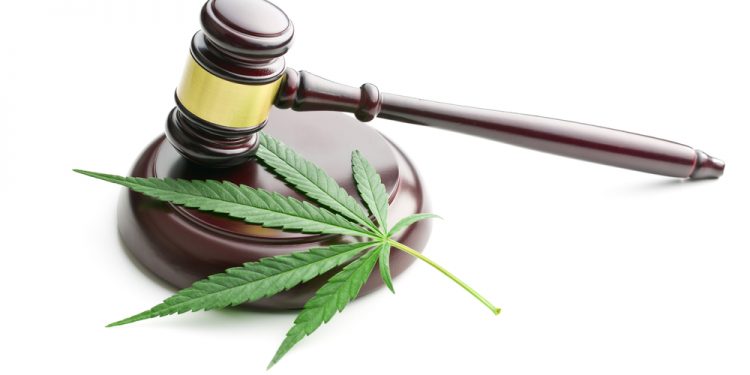The Minnesota House and Senate have substantially agreed on legislation that will legalize marijuana and other cannabis products under Minnesota law. Minor details unrelated to employment law must be worked out, but Governor Walz has stated that he will sign the bill into law when it hits his desk. This new law presents new challenges for Minnesota employers.
Cannabis Legalization Efforts in Minnesota and Federal Law
Although 21 states have declared legal the adult recreational use of marijuana and related cannabis products, the federal Controlled Substances Act still categorizes marijuana and related cannabis products as Schedule I substances — see 21 U.S.C.S. § 844(a). The use, possession, sale, distribution, and manufacture of such products are federal criminal offenses, except where used for federally-approved research projects. There are no exceptions for marijuana use for medicinal purposes or for marijuana use conducted in accordance with state law in 21 U.S.C.S. § 844(a). However, there is a movement at the Congressional level for decriminalization of the products.
Understanding the Minnesota Omnibus Cannabis Bill and How It Affects Employers
Under both the House and the Senate versions of the Omnibus Cannabis Bill, cannabis[i] will no longer be classified as a drug. “Drug” is defined as a controlled substance per Minn. Stat. §152.01, subd. 4. As of August 1, 2023, the definition of “drug” will exclude “marijuana, tetrahydrocannabinols, cannabis flower, cannabis products, lower-potency hemp edibles, or hemp-derived consumer products.”
Under the Minnesota Lawful Consumable Products Act, Minnesota employers may not “refuse to hire a job applicant or discipline or discharge an employee because the applicant or employee engages in or has engaged in the use or enjoyment of lawful consumable products, if the use or enjoyment takes place off the premises of the employer during nonworking hours.” The Omnibus Cannabis bill would prohibit employers from discriminating against employees because of their use of marijuana and other cannabis products on personal time, by including cannabis as a lawful consumable product under Minnesota law, along with alcohol, tobacco, etc. This is regardless of whether federal or other state law considers cannabis use, possession, impairment, sale, or transfer to be unlawful.
Exceptions will remain for peace officers, firefighter, positions working directly with children, vulnerable adults, or healthcare patients, positions requiring a commercial driver’s license, federally-funded grant positions, or other jobs where drug testing is required under federal law. For all other positions, employers with drug-free workplace policies will need to revise those policies to ensure that they are compliant with the changes to the Lawful Consumable Products Act.
The Impact of the Omnibus Cannabis Bill on the Minnesota Workplace
The Omnibus Cannabis Bill will impact workplace drug testing policies and practices in Minnesota. Under Minnesota law, if employers wish to test employees for drugs under any circumstance, they can do so only if they have adopted and disseminated a policy that complies with Minnesota’s Drug Testing in the Workplace Act (DATWA).
Effective August 1, 2023, subject to the above exceptions, pre-employment drug tests will no longer be permitted to screen for marijuana and other cannabis products. Under certain circumstances, however, employers may test for cannabis along with alcohol and other drugs as part of its reasonable suspicion testing protocol, random testing program, or post-accident testing policy.
Despite these changes, the Omnibus Cannabis Bill makes clear that employers may have policies prohibiting the use, possession, sale, or transfer of marijuana and other cannabis products while working or on work property. Employers may also bar employees from using cannabis off-duty but coming to work under the influence. Employees who violate that policy may be disciplined or terminated for doing so.
Effect of Marijuana and Cannabis Use on Productivity and Workplace Safety
According to Quest Diagnostics’ 2022 Drug Testing Index™ (DTI), in states that have legalized recreational marijuana, positivity rates on urine drug tests have doubled over the last five years. Oral fluid drug tests, which must be observed making it harder to defeat than urine testing, revealed even more sobering results. Oral fluid tests for cannabis had a positivity rate of 14.8%, a 20.3% increase over 2020 and a 68.2% increase compared with five years earlier.
As employers have experienced, the COVID-19 lockdowns have triggered a dramatic increase in demands of workers to telecommute. Research based on a 2021 poll conducted by AmericanMarijuana.org found that 15% of Americans working from home during the pandemic were consuming marijuana. The data showed that 41% of remote employees under 30 admitted they used cannabis while on the clock. A third of remote employees ages 30-49 used cannabis while working. Thirty percent of remote employees said their drug use increased from before the pandemic and that time was the first time that over half of them used while working.
Potential Costs to Minnesota Employers of Legalizing Cannabis
Minnesota employers will bear the burden of indirect costs of the anticipated increase of marijuana abuse by Minnesota workers. The U.S. Centers for Disease Control points out that cannabis is a sedative that causes sensory distortion, disorientation, and impaired judgment and concentration. It adversely affects depth perception, reaction time, and coordination, and contributes to delayed decision-making, impaired learning, It also adversely affects fine motor skills. For this reason, despite the general decriminalization of cannabis use, it will still be illegal operate motor vehicles in a state of cannabis intoxication.
Although studies on the effect of cannabis use on employee productivity are mixed, the National Safety Council (NSC) reports that individuals working while under the influence of cannabis demonstrate decreased productivity. One study found that “cannabis use before and during work negatively relate to task performance and organization-aimed citizenship behaviors.” The Substance Abuse and Mental Health Services Administration reports that research shows that people who use marijuana are more likely to have relationship problems, worse educational outcomes, lower career achievement, and reduced life satisfaction.
Cannabis Legalization and Safety in the Minnesota Workplace
Statistically, cannabis use clearly presents a significant safety concern in the workplace, especially in safety-sensitive positions. According to a study reported by the National Institute on Drug Abuse, employees who tested positive for marijuana had 55% more industrial accidents and 85% more injuries. In 2019, the NSC released a position statement stating that “there is no level of cannabis use that is safe or acceptable for employees who work in safety-sensitive positions.” This includes anyone who drives a motor vehicle as a part of their job.
These results highlight challenges many employers face in maintaining a productive workforce, a safe work environment, and employee health and well-being. At the same time, employers fear that coming down hard on workers who use cannabis will chase employees away and shrink the available labor pool.
While many employers will choose to live and let live when it comes to their employees’ cannabis habits, there are (or can be) some serious risk management concerns that must be taken into consideration. As Keith Ward, General Manager and Vice President, Quest Diagnostics Employer Solutions, stated in the Quest news release:
Our Drug Testing Index data raises important questions about what it means to be an employer committed to employee health and safety. Eager to attract talent, employers may be tempted to lower their standards. In the process, they raise the specter of more drug-related impairment and worksite accidents.
Next Steps for Minnesota Employers as Cannabis Legalization Nears
Once the Governor signs the Omnibus Cannabis Bill into law, Minnesota employers will have a few weeks to take actions necessary to ensure compliance. They should consider the following:
- Develop or revise your drug-free workplace policy. Employers should set clear guidelines on drug use, including cannabis, in the workplace. Quote the section of the statute that expressly allows employers to ban use of cannabis on the premises, during working hours, or in manner that put the employee under the influence during work time.
- If you have other workplace policies that provide for disciplinary action for illegal drug or alcohol use and cites marijuana and cannabis products as examples of such drugs, remove these products from that list. They are no longer recognized as a drug.
- Revise your drug testing policy, if you have one.
- If you have no drug testing policy, consider adopting one, if only to permit testing based on reasonable suspicion of intoxication and/or post-accident testing. Although such testing may never be needed, it can deter use on the job or in a way that impacts performance and sends a message that the employer expects employees to be clear-headed while working.
- Train managers on signs of cannabis use and intoxication.
- Adopt or revise your policy on medical marijuana use.
- Be prepared to defend against employee claims of discrimination, retaliation, or wrongful termination that arise from cannabis use. Implementing the above measures will help mitigate those risks.
[i] “Cannabis” is defined as a substance that contains cannabinoids, a byproducts of certain cannabis plants that cause drug-like effects in people, and include the following: marijuana, hashish, cannabis flower, cannabis concentrate, products infused with cannabinoids including tetrahydrocannabinol (THC), extracted or derived from cannabis plants or cannabis flower, artificially derived cannabinoid, lower-potency edible hemp edibles, hemp-derived consumer products, or hemp-derived topical products.








